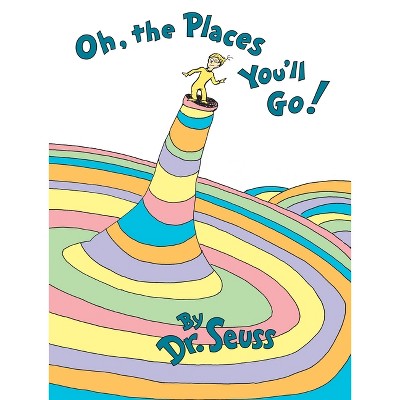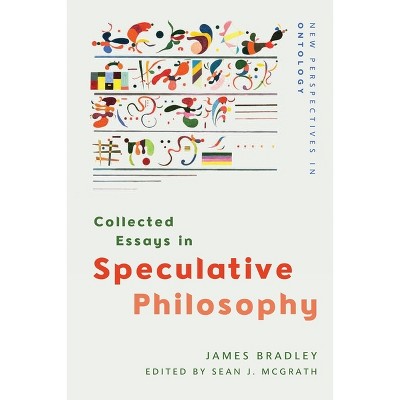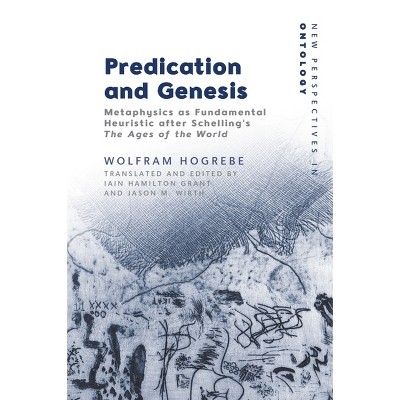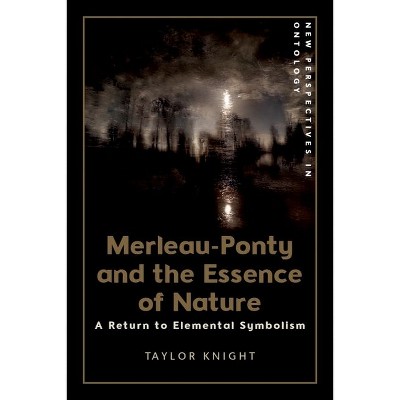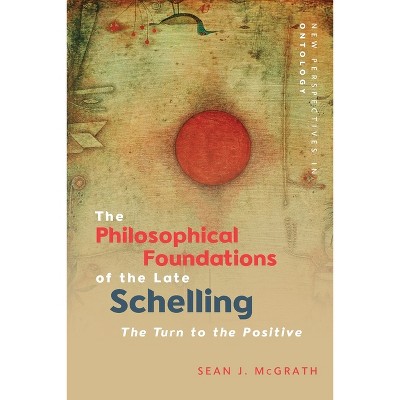Hölderlin's Philosophy of Nature - (New Perspectives in Ontology) by Rochelle Tobias (Paperback)

About this item
Highlights
- In our age of climate change, the work of the decidedly philosophical poet Friedrich Hölderlin has gained renewed urgency with its emphasis on the forces of nature that produce life and at the same time threaten to devour it.
- About the Author: Rochelle Tobias is Professor of German at Johns Hopkins University.
- 272 Pages
- Literary Criticism, Poetry
- Series Name: New Perspectives in Ontology
Description
About the Book
This collection of 15 essays by distinguished international scholars reconsiders what Friedrich Hölderlin's work reveals about the impulses toward form and formlessness in nature and the role that poetry plays in creating Holderlin's 'harmonious opposition'.
Book Synopsis
In our age of climate change, the work of the decidedly philosophical poet Friedrich Hölderlin has gained renewed urgency with its emphasis on the forces of nature that produce life and at the same time threaten to devour it. At the heart of his work lies an understanding of nature and the role that consciousness plays within it. This responds to, but also revises, the concerns of 18th and 19th-century philosophy of nature.
This collection of 15 essays by distinguished international scholars reconsiders what his work reveals about the impulses toward form and formlessness in nature and the role that poetry plays in creating Holderlin's 'harmonious opposition'. The collection shows that Hölderlin anticipates many of the concerns that motivate contemporary environmental thinking.
The contributions in the volume respond to this programmatic framework by taking Hölderlin's work in different -and sometimes even oppes-directions. What emerges from the collection is thus not Hölderlin's philosophy of nature but Hölderlin's nature-philosophies. (...) The success of the volume consists in its reconsideration of Hölderlin's poetry as indicative of a speculative project that is not yet complete, one that brings into articulation forms of nature that exceed and yet, some-how ground (or unground) the human being in exploratory and often contradictory ways (...).
From the Back Cover
Shows the relation between Holderlin's poetic theory and his concept of nature as developed in his poetry, prose and dramatic works The work of the decidedly philosophical poet Friedrich Hölderlin has gained renewed urgency in its emphasis on the forces of nature that produce life and at the same time threaten to devour it. This volume brings Hölderlin into dialogue with pre-Socratic and German Idealist thought as well as contemporary environmental theory to show the continued relevance of the poet's understanding of natural catastrophes. With twelve original contributions on Hölderlin's poetry by noted scholars including Jennifer Anna Gosetti-Ferencei, Achim Geisenhanslüke, Anja Lemke, Jan Mieszkowski, Katrin Pahl and Thomas Schestag, the book explores Hölderlin's legacy and what it reveals about the impulses toward form and formlessness in nature and the role that poetry plays in fashioning a musical accord, or what Hölderlin called 'harmonious opposition'. Rochelle Tobias is a Professor of German at the Johns Hopkins University.Review Quotes
This rigorous, well-written study gives special attention to how Hölderin differed from his idealist contemporaries (especially Fichte and Schelling), but many readers may find it rewarding to contemplate how he seems to fall between Herder and Nietzsche in the development of the philosophy of history. [...] Summing Up: Recommended.The contributions in the volume respond to this programmatic framework by taking Hölderlin's work in different -and sometimes even oppes-directions. What emerges from the collection is thus not Hölderlin's philosophy of nature but Hölderlin's nature-philosophies. (...) The success of the volume consists in its reconsideration of Hölderlin's poetry as indicative of a speculative project that is not yet complete, one that brings into articulation forms of nature that exceed and yet, some-how ground (or unground) the human being in exploratory and often contradictory ways (...).--Gabriel Trop
The contributions in the volume respond to this programmatic framework by taking Hölderlin's work in different -and sometimes even oppes-directions. What emerges from the collection is thus not Hölderlin's philosophy of nature but Hölderlin's nature-philosophies. (...) The success of the volume consists in its reconsideration of Hölderlin's poetry as indicative of a speculative project that is not yet complete, one that brings into articulation forms of nature that exceed and yet, some-how ground (or unground) the human being in exploratory and often contradictory ways (...).--Gabriel Trop "Monatshefte"
This collection takes Hölderlin at his word, which means reading him as a poet and as a thinker in one. It leaves us in no doubt as to the radical insights his work offers into what a philosophy of nature is and can be, never forgetting that philosophy and poetry are themselves part of what we do to nature.--Charlie Louth, The Queen's College, Oxford
About the Author
Rochelle Tobias is Professor of German at Johns Hopkins University. She is the author of The Discourse of Nature in the Poetry of Paul Celan (Johns Hopkins University Press, 2006) and is co-editor of Phenomenology to the Letter: Husserl and Literature (de Gruyter, 2019).
Shipping details
Return details
Trending Fiction

